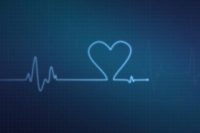Foods that fight fatigue
Eating well also provides optimum fuel for your body and can help keep you firing on all cylinders.
Certain types of foods can help preempt fatigue. Candy and other simple sugars give you a quick burst of energy but that boost fades quickly and can leave you feeling depleted and wanting to eat more. On the other hand, whole grains and healthy unsaturated fats supply the reserves you can draw on throughout the day. So to keep your energy up and steady, limit refined sugar and starches to the occasional treat.
How you eat can also either boost your energy or drag it down.
Eating small meals and snacks every few hours throughout the day provides a steady supply of nutrients to body and brain. Some people begin feeling sluggish just a few hours after eating. But it doesn't take much to feed your brain. A piece of fruit or a few nuts should do it.
Smaller is better especially at lunch. Researchers have observed that people who have a big lunch typically show a more pronounced afternoon slump. One possible explanation is a sharp rise in blood sugar after eating, followed by an energy dip a few hours later.
Looking for a reprint of this article?
From high-res PDFs to custom plaques, order your copy today!





